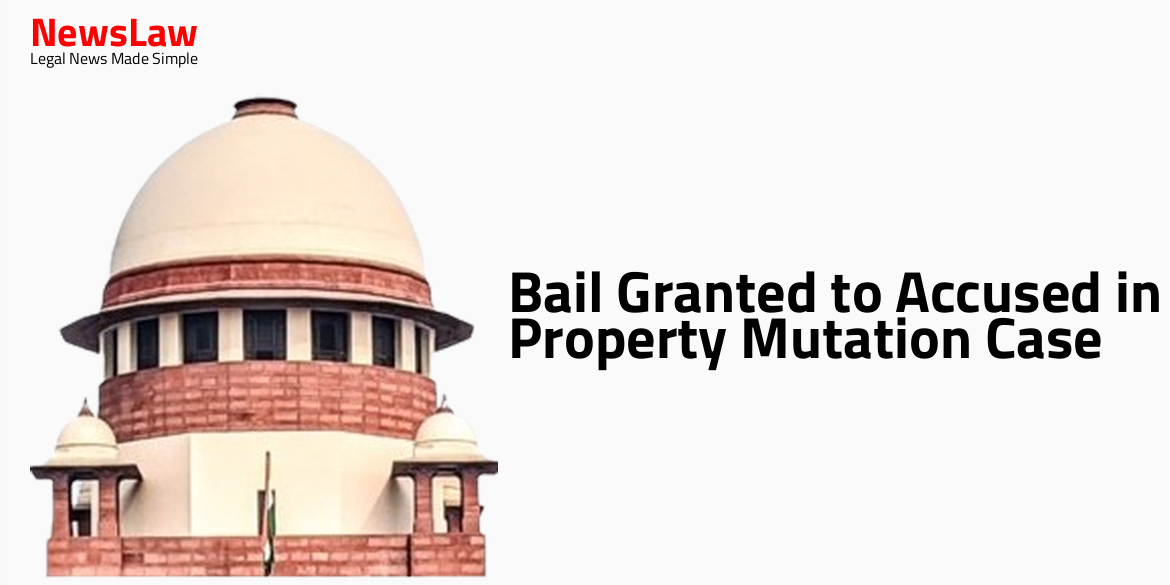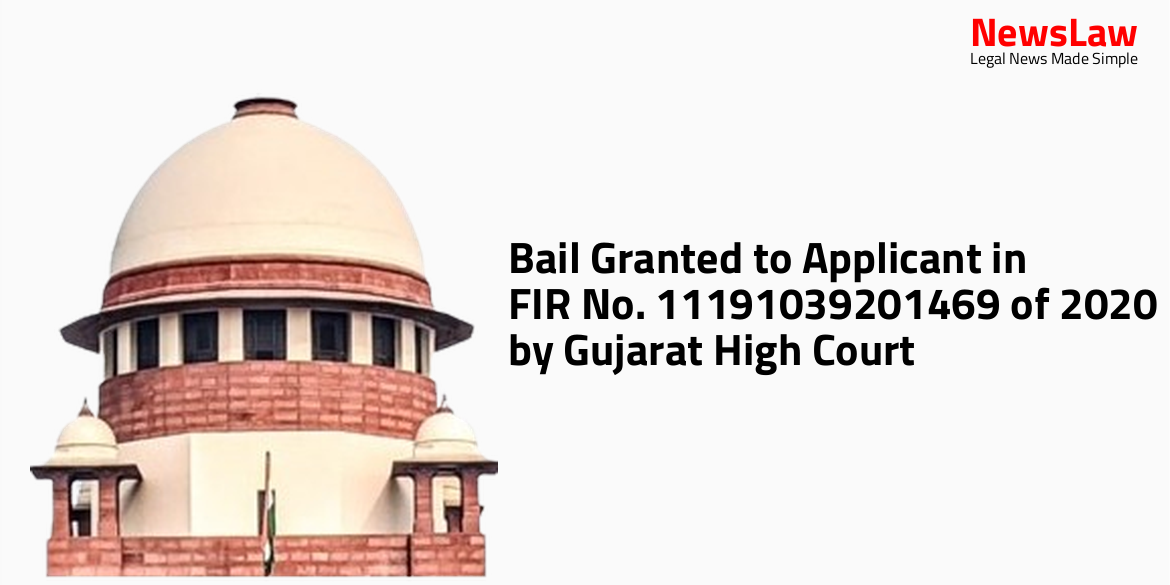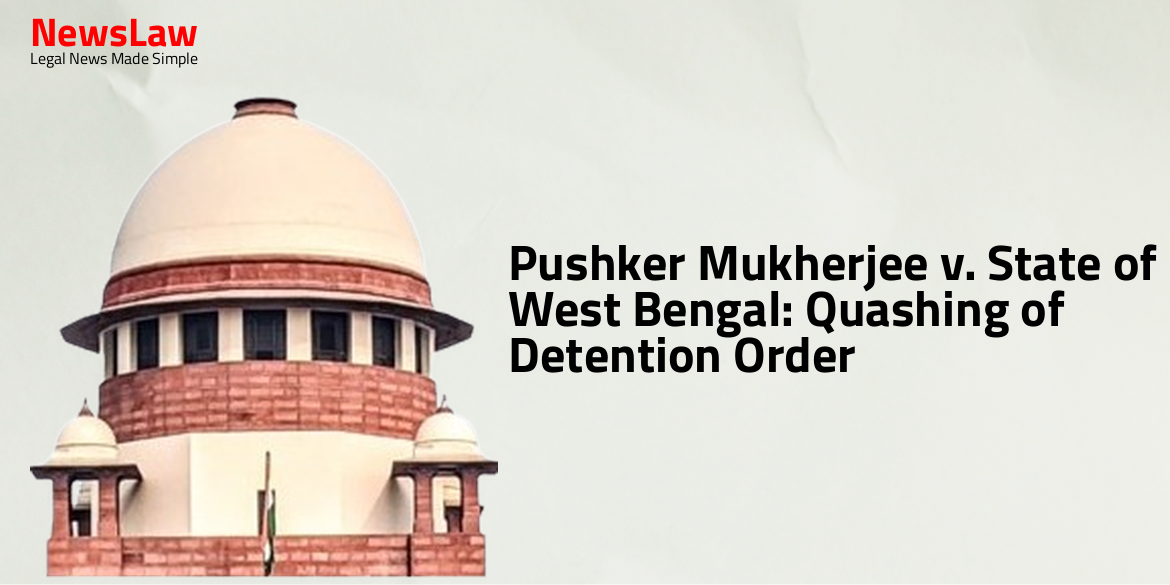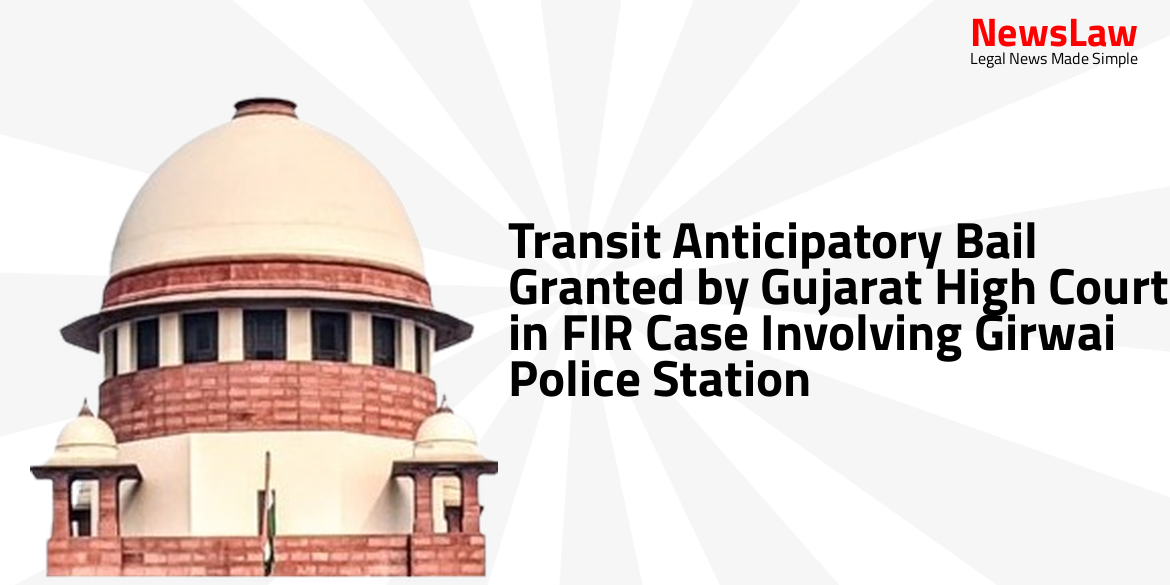In a recent judgment by the Gujarat High Court, bail has been granted to an accused involved in a property mutation case. The accused, in collaboration with co-accused, attempted to manipulate documents to change the name of a third party in the record of rights. Despite the unsuccessful attempt, the accused was implicated in the case based on statements by co-accused. The court’s decision was influenced by the nature of the allegations and the lack of direct involvement beyond the fabrication of documents. #LegalCase #HighCourt #PropertyMutation #BailGranted
Facts
- Application for regular bail under Section 439 of the CrPC filed by the applicant.
- The FIR was registered for multiple offenses under the IPC.
- The incident in question took place between 29.12.2019 to 01.02.2023, with the applicant arrested on 17.04.2024 and in judicial custody since then.
- The applicant was not named in the original FIR, but implicated during the course of the investigation based on statements by co-accused.
Arguments
- The applicant has not obtained any benefit from the transaction in question.
- The applicant is accused of attempting to create a false Power of Attorney and fabricate documents with co-accused.
- They made efforts to change the name of a third party in the record of rights using the forged documents.
- However, their attempt was unsuccessful in mutating the name.
- Apart from the above role, no further involvement or role is attributed to the present applicant in the case.
- The learned advocate for the respondent-State opposed the grant of regular bail citing the nature and gravity of the offence.
- It was mentioned that during the applicant’s remand, no incriminating material was found or any new information was received.
- The advocate argued for the applicant’s release on bail based on the fact that the case relies heavily on documentary evidence and that all offences are exclusively triable by the Court of Magistrate.
- It was urged that the applicant should be granted bail considering the nature of the offence and based on the principle of parity with co-accused.
- The respondent contended that the applicant falsified a Power of Attorney and a Property Card in an attempt to mutate the name of a third party in the record of rights.
- The respondent highlighted the mens rea of the applicant, evident from the manipulation of documents since the beginning of the crime.
- The respondent pointed out two similar antecedents of the applicant to argue against granting bail, stating that the role attributed to the applicant should be taken into consideration.
- The advocates for both parties did not request a further reasoned order.
Analysis
- Role of the present applicant and co-accused at the time of the crime
- All offenses are exclusively triable by the Court of Magistrate
- The prosecution’s case relies on collected documentary evidence
- The Court considered the law laid down by the Hon’ble Apex Court in the cases of Sanjay Chandra v. Central Bureau of Investigation and Satender Kumar Antil v. Central Bureau of Investigation & Anr.
- Without delving into the evidence in detail, the Court found that given the nature of the allegations in the FIR, it is appropriate to grant regular bail to the applicant.
- Based on the facts and circumstances of the case, the Court exercised its discretion to release the applicant on regular bail.
Decision
- The Sessions Judge has the authority to issue a warrant in case of breach of conditions.
- The bail bond must be executed before the lower Court having jurisdiction.
- The Court can modify or relax any of the conditions as per the law.
- The applicant should not change residence without court permission.
- Release of the applicant is subject to not being required in connection with any other offense.
- Observations made by the court during bail should not influence the trial court.
- The applicant is ordered to be released on bail on conditions like not misusing liberty, surrendering passport, marking presence at the police station, and providing current address.
Case Title: CHETENDRASINH @ CHETAN NARPATSINH PAVAR Vs. STATE OF GUJARAT
Case Number: R/CR.MA/10613/2024



